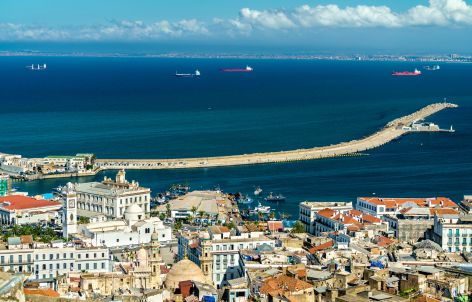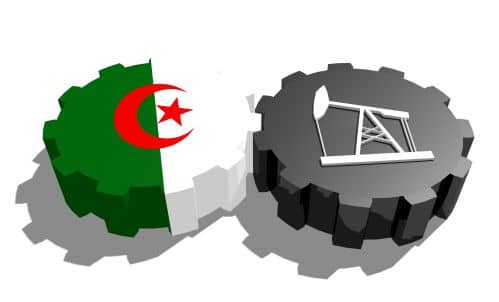
Algeria Facts and Statistics
The area covered by Algeria is around 2,381,740 sq km and the population of Algeria is around 37 million, according to a 2012estimate. It has a larger population than its neighboring countries and is the second largest oil-producing country in Africa, as it produces around 2.1 million gallons of oil per day.
Location:
Algeria is located in Northern Africa between Tunisia and Morocco.
Capital:
The capital of Algeria is Algiers.
Ethnic Groups in Algeria:
Berbers are the largest ethnic group in Algeria, followed by the Turks, who are far less numerous in population than the Berbers, amounting to only 25% of the total population. Europeans comprise only 1% of the total population.
Religion:
The country’s official religion serves the dominant Sunni Muslim population; the minorities—Christians and Jews—make up a bare 1% of the population.
Languages spoken:
Algerian Arabic is spoken widely in Algeria, whereas “Berber” claims the status of national language of Algeria. A third language, French, is used on an official level, because Algeria was once a French colony. Consequently, there are frequent requests for French translation professionals in Algeria.
Society and Culture:
The inhabitants of Algeria have been subject to a revolutionary change throughout the land’s history—from early subjugation to the Roman Empire to conquest by the Vandals and later conquest by the Ottoman Empire in the sixteenth century, followed by nineteenth-century conquest by France, ostensibly to rid the land of three centuries of marauding by Barbary pirates, who used the region as their headquarters. The Europeans left a strong impact of their culture on the Algerian society, but as the population is predominantly Muslim, it is still not a liberal society. After a bloody, brutal eight-year war of independence, the Algerians overthrew their French rulers and finally gained their independence, marking a new beginning for the Algerian. After political upheavals, elections were held, a constitution was adopted and women started actively to participate as significant members of the society. Partially because education is more accessible to the common Algerian than it was ever before, the present Algerian society continues to strive to modernize and enter the world club of developed countries.

General Etiquettes and Customs in Algeria:
- The people are warm and welcoming and like to entertain guests. They greet a guest or a visitor by a genial handshake. In case of women, because it is the individual’s choice to shake hands with a man or not, it is best to wait and see if the woman extends her hand herself.
- After the handshake, people inquire after the health and well-being of others present.
- It is not appropriate to come directly to the point. The focus issue for the meeting should be mentioned after one has given his/her introduction.
- Using first names isn’t offensive but doing so depends on the level of intimacy and frankness of all involved. A formal occasion or meeting requires attendees to address people by their last names.
- Giving a gift shows your love and concern. Algerians love to be given gifts and it is the best way to form a bond.
Business Meetings and Etiquettes:
- The people are very friendly; they like to build a relationship based on trust and respect.
- Algerians are even friendly with people with whom they interact only for business. Often they try to create an informal relationship by holding hands longer than necessary or using other similar physical gestures to show affection. One must accept the practice as nothing unusual.
- They must not feel humiliation or an effort to snub them. Outsiders must always show respect for their opinions.
- Business cards are not handed out formally and should preferably be typed in Arabic or French. However, not everyone understands English. When getting business cards printed, you must keep this in mind.
- Scheduling appointments is important before planning to meet; similarly scheduling a meeting on short notice is neither customary nor welcome.
- Because of the importance Algerians give to family and relations, they may not be punctual in keeping appointments. Americans should accept this cultural characteristic with as much grace as possible.
